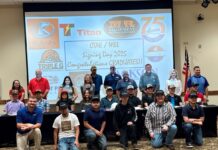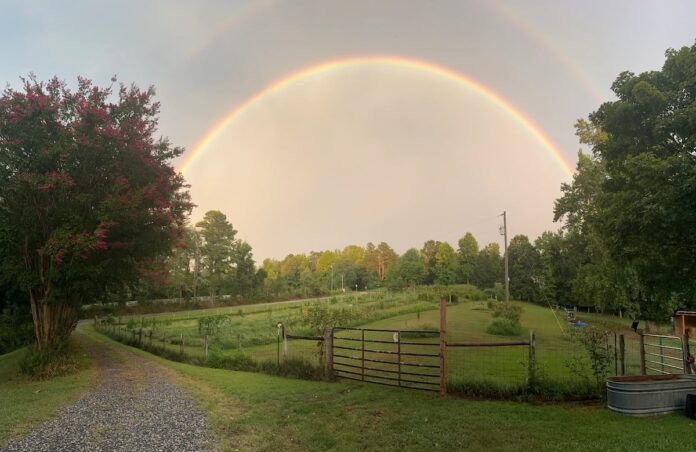
In a conversation with Lori Cash, owner of Monkey Doodle Acres, she shared a slightly suspenseful moment from home. Late one night, she couldn’t find her youngest daughter. She searched every corner of the house, from the attic to the parlor, calling her name with growing concern.
Eventually, she spotted her: curled up on the front porch, nestled in an overstuffed chair,
breathing in the fresh air of a gentle spring night. A reminder that sometimes, the quietest corners hold the coziest stories. And the story of Monkey Doodle Acres radiates coziness.
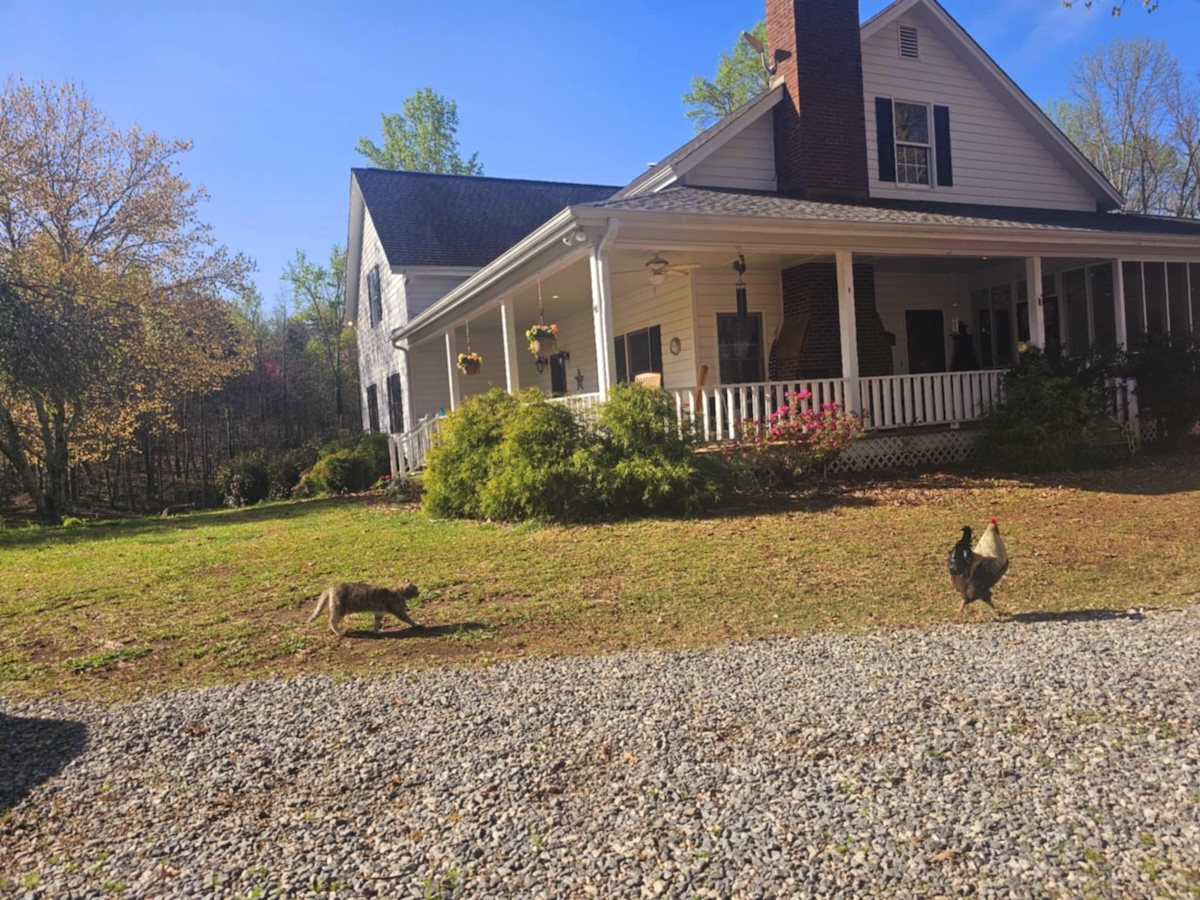
Nestled in the rolling hills of North Hall, this modest sanctuary may span only a handful of acres, but it pulses with life. Across the pastures, animals graze and gallivant in a kind of pastoral ballet—roosters grandstand, a bull nudges for kisses, and a donkey named Anna gently tucks her head beneath your hand, asking—politely—for a pat. In the distance, Daniel and Deborah—the resident alpacas—watch with quiet calculation, appraising the scene before stepping forward in cautious hope of treats and adoration.
At the center of it all stands the farmhouse welcoming visitors with its warm, open arms like a kindly grandmother. Just beyond the house rests a 100-year-old barn—weathered by time, yet steadfast in its quiet purpose, still sheltering and serving those four-legged creatures that live within. As I bend down to pet a baby goat, I am persuaded that Monkey Doodle Acres doesn’t just exist—it nourishes.
Sourdough Helped Her Grow
Lori Cash, a mother of four and the quiet force behind the farm, never set out to be a farmer. She had no generational claim to land or legacy. What she did have was a loaf of sourdough.
“I started selling through Friends of Clermont,” she says, the kind of local group name that sounds like a gospel trio or a quilting circle. “That’s how I met people. It grew from there.”
What grew wasn’t just bread dough—it was a modest patch of land into something beautiful, useful, and distinctly 21st-century Southern. Monkey Doodle Acres now operates as an agrotourism grotto, offering guided farm tours, farm-to-table brunches, and gentle experiences that feel worlds away from both industrial agriculture and curated, performative country life.
The Name of the Farm
The name Monkey Doodle is not a brand, exactly. It’s a memory: a mash-up of childhood nicknames—Monkey Pants and Doodle Bug—given to Lori and Patrick Cash’s children. The moniker carries the informality of a family joke, but like everything here, it was chosen with care.
Care is the governing principle of Monkey Doodle Acres. It’s visible in the way the goats are named—Mary and June, as if they just left the church potluck. I can picture Lori scolding them mid-lesson while homeschooling at the kitchen table (“Mary! No! We do not eat the window screen!”). And it’s certainly there in the way Deborah, the farm’s bossiest alpaca, is tolerated with the weary affection normally reserved for an eccentric aunt.
Children and the Everyday
The Cash children—Norah and Eliza—are homeschooled on the farm. Their curriculum includes mathematics, literature, goat discipline, zipline testing, and alpaca affection. There is no divide here between education and life. One minute, the girls are diagramming sentences; the next, they’re separating feuding roosters or diagnosing a feverish goat.
When I asked if the girls missed Alpharetta and city amenities, Norah announces that she loves farm life. Eliza says, with theatrical emphasis, “I’m all about this life.” I believe them.
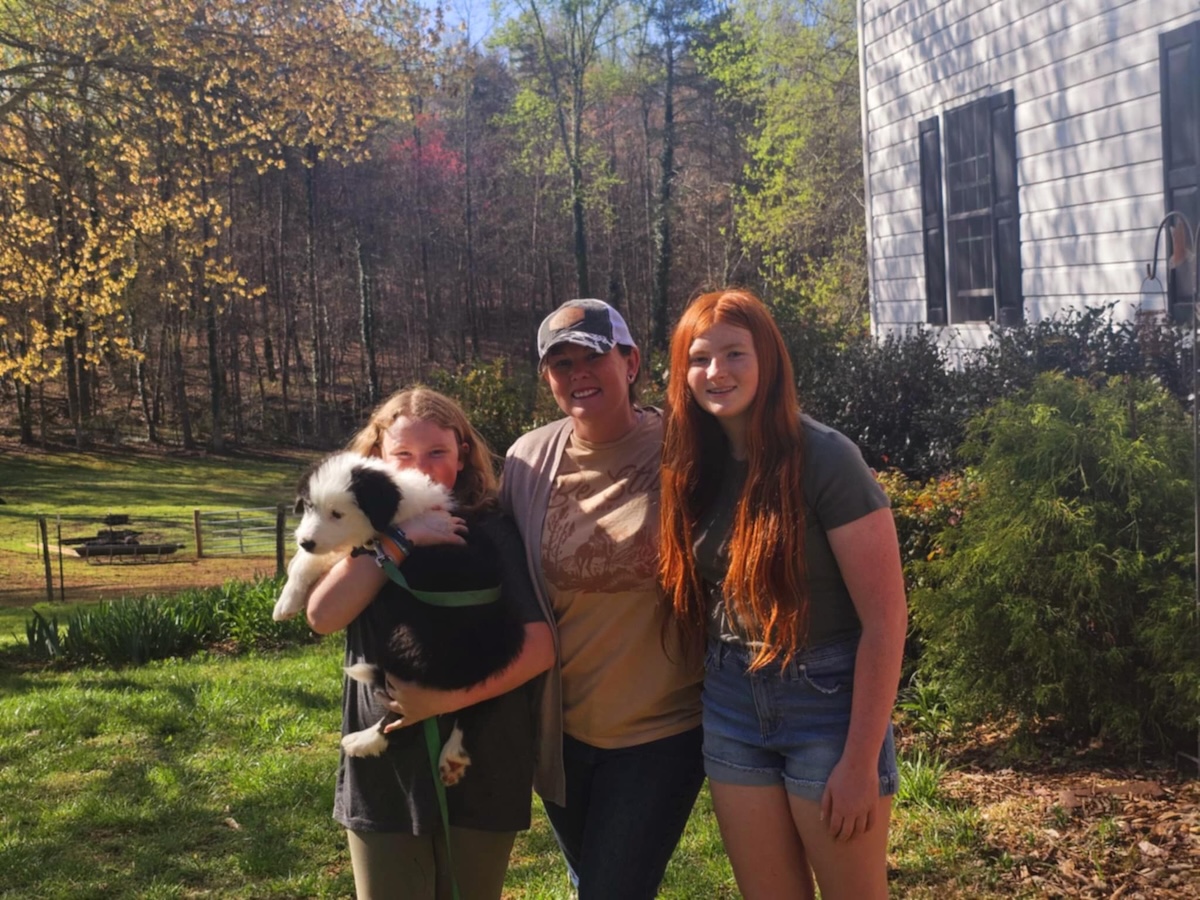
The Animals
Monkey Doodle is not a petting zoo and it’s not a production farm. It’s something softer: a relationship with animals and the land. The alpacas arrived in October 2023. The cows came later—Noah was born during Hurricane Helene, a detail Lori shares casually but that feels weighted with symbolism. Storm-born, tenacious, and a little wild—he fits right in.
“You’re very strong. Please don’t do this,” Lori says to the misbehaving Highlander—in a voice overflowing with affection, as he tries to force her attention.
The roosters, like characters lifted from an imitation of Chaucer’s “The Nun’s Priest’s Tale,” argue, preen, and posture—loudly and endlessly, with no resolution in sight. Meanwhile, Deborah the alpaca remains reliably saucy.
Opportunities for Intimacy and Family Reunion
Trails wind organically through the property—not manicured for Instagram, but beautiful in the quiet, unassuming way that only lived-in land can be. Guests wander beneath canopies of trees to shaded picnic spots, where tablecloths and charcuterie boards await, already paired with glasses of sweet tea. Farm brunches are served with effortless charm, each detail thoughtful and inviting. Nearby, photography sessions unfold against the weathered barn, its wooden frame leaning ever so slightly—heavy with a century of stories, still standing, still telling.
The Cashes have begun to host events—bridal showers, baby showers, and intimate family reunions. Nothing flashy. The elegance comes from restraint. Lori, who learned everything about domestic husbandry and animal health from observation, research, and necessity, has no interest in flashy glamour. “We felt blessed, and we wanted to bless others,” she says. That’s not a mission statement. It’s just a fact.
Farming, Without the Pretension
If Willa Cather had imagined agritourism, it might have looked like this: a deeply human, pleasingly messy, non-commodified version of farm life. This isn’t some rebranded influencer retreat with denim overalls and curated baskets of eggs. Monkey Doodle Acres is an actual working home that happens to open its gates.
The family is currently working with the local planning commission and navigating the sort of conditional use red tape that only modern zoning departments can conjure. “It’s owned agriculture,” Lori says, as if repeating the magic words might make the barn build itself. They’re not frustrated—just patient. Farm life demands patience. It also demands humor, a good pair of boots, and the ability to redirect both toddlers and livestock with the same sentence.
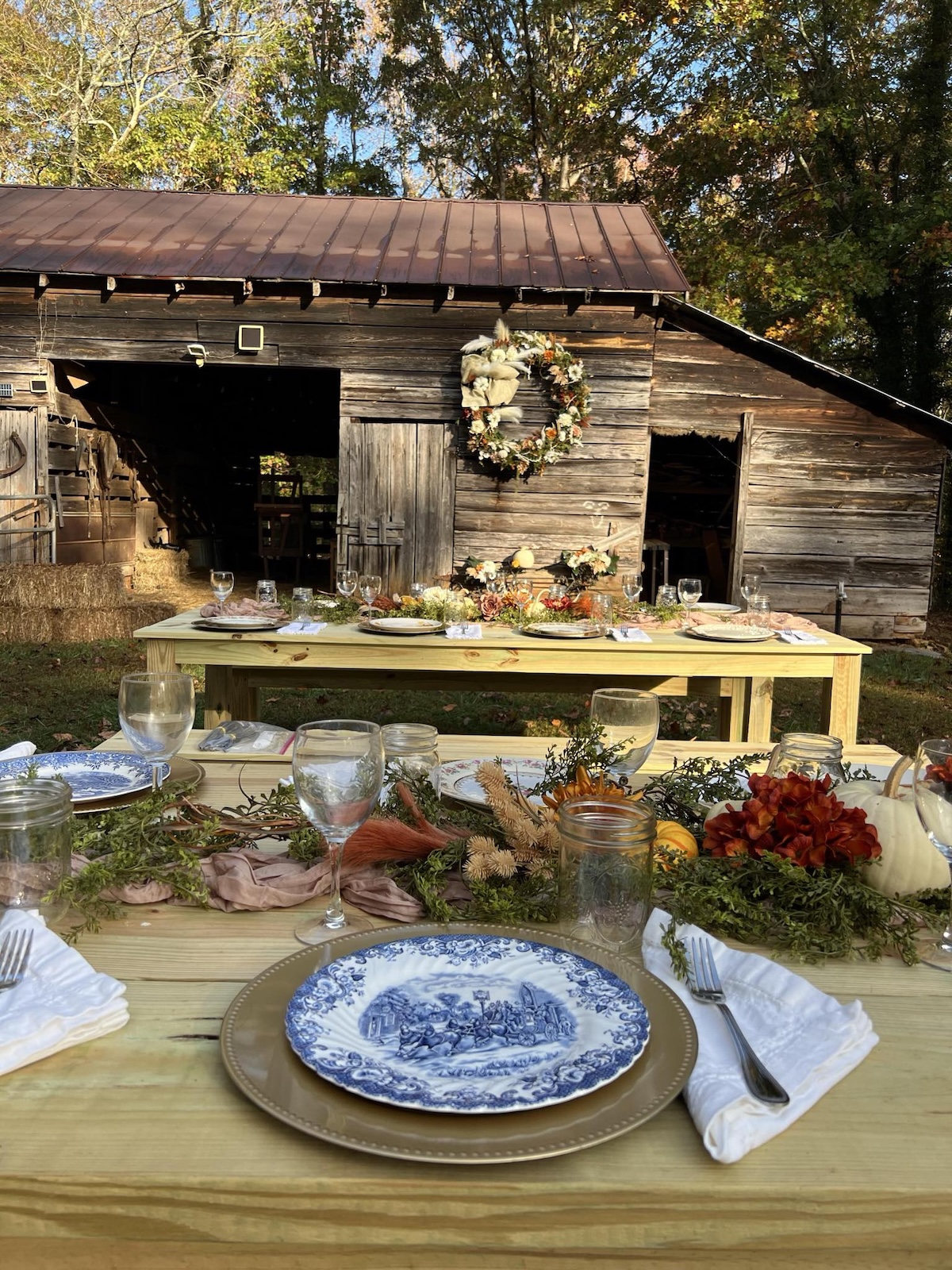
The Rise of Agrotourism
Monkey Doodle Acres is part of a much larger movement sweeping the American South and beyond. Agrotourism—where farms offer recreational and educational experiences to the public—has become a booming industry. According to the USDA, agritourism revenue tripled between 2002 and 2017, reaching nearly $950 million in 2017, and has continued to climb.
A recent study predicts the global market will hit $141 billion by 2030. In Georgia alone, farms offering agrotourism earned over $31 million in 2022—accounting for nearly 9% of all farm-related income.
The average Georgia farmer who opened their land to guests brought in nearly $42,000 from those efforts (UGA Extension). For farmers like Lori and Patrick, it’s not just about income—it’s about integration. Their farm doesn’t pretend to be a product. It’s an extension of their family life. The food served at brunch? Wholesome and filling. The picnic tables? Set up with the same hospitality they’d offer friends. The experience, in other words, is not curated—it’s offered.
Conclusion
There is something quietly revolutionary about Monkey Doodle Acres, not in its scale or branding, but in its values. It represents a rejection of speed, spectacle, and digital fatigue. Guests come here to slow down. They leave with sun on their shoulders and goat hair on their pants. Lori and Patrick aren’t reinventing agriculture, and they’re not chasing trends.
They’re simply opening the gates to their lives and letting others experience what it’s like when beauty grows alongside responsibility. It’s not a tourist attraction. It’s a family. It’s a farm. And sometimes, it’s a little chaotic. But it’s always intentional.
Which is to say: it’s Monkey Doodle.
Carly McCurry is the publisher of The Cute North Georgian magazine. Her work appears on NowHabersham.com in partnership with Now Network News.




